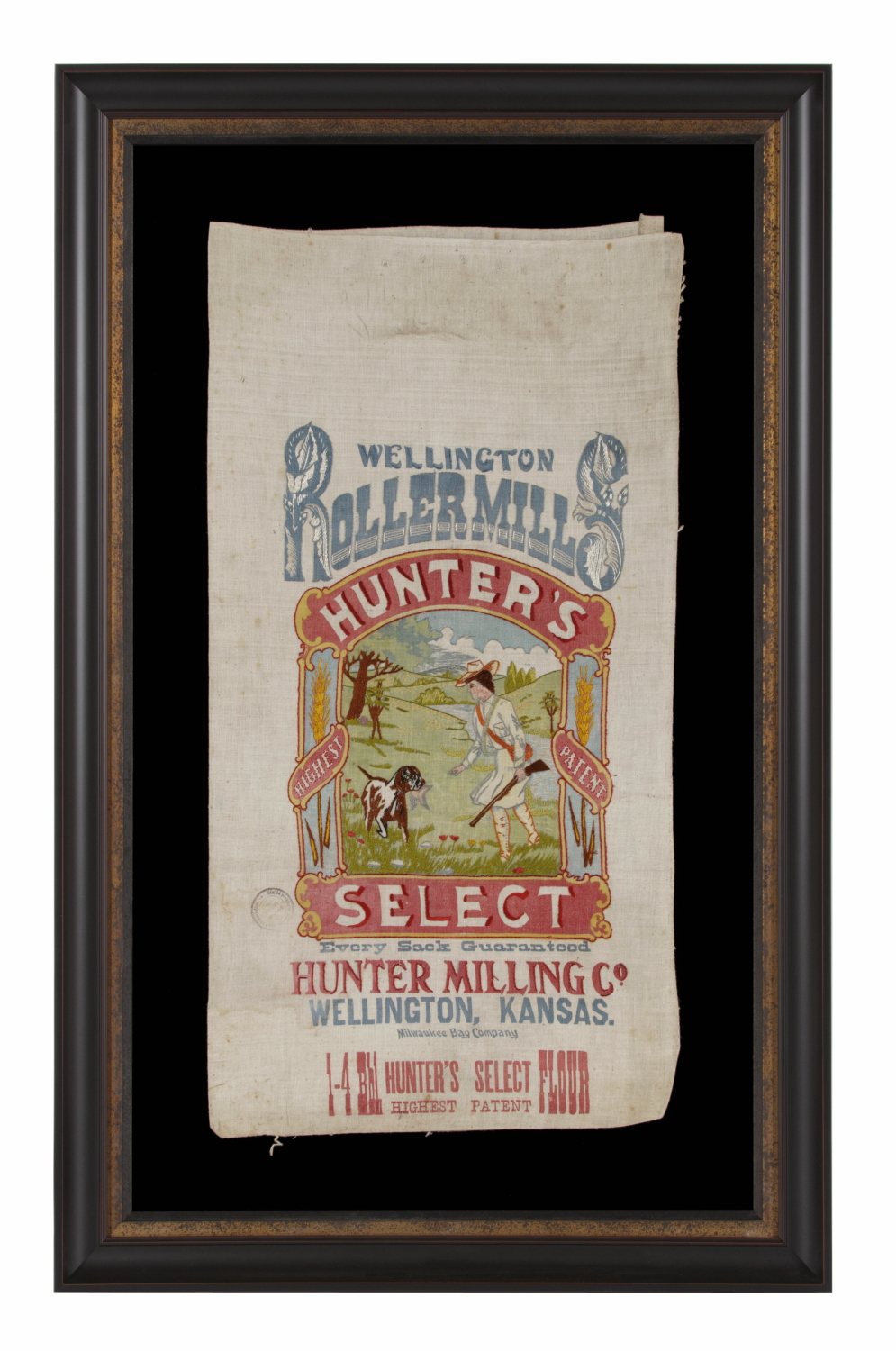
| |
WWI BELGIAN HUNGER RELIEF FLOUR SACK FROM KANSAS, EMBROIDERED BY BELGIAN WOMEN AND SENT BACK TO THE STATE IN THANKS, 1915-19 |
| |
|
| Dimensions (inches): |
Frame - 40.25" x 25.5", Textile - 30" x 15.75" |
| Description: |
|
WWI BELGIAN HUNGER RELIEF FLOUR SACK FROM KANSAS, EMBROIDERED BY BELGIAN WOMEN AND SENT BACK TO THE STATE IN THANKS, 1915-19:
When the First World War began in 1914, Germany invaded Belgium, soon followed by France. Belgium imported almost all of its food. Since German troops not only confiscated all available provisions, but refused to feed the country's inhabitants, the Belgian people were in a terrible predicament and facing mass starvation.
While America did not enter WWI until 1917, there was a push by future Republican President Herbert Hoover to aid Belgium. Leading the way was the state of Kansas, which had yielded a bumper crop of wheat and pledged to share its excess with the starving nation. Beginning in 1914, Kansas' wheat producers sent flour to Hoover's Commission for Relief in Belgium (CRB), filling a ship that sailed for Holland in January of 1915. The cargo was then conveyed to its final destination by various means. Over the next 5 years the CRB proceeded to send approximately seven million pounds of flour.
In early 1916, embroidered sacks began arriving in Kansas, decorated by Belgian women and girls with silk floss in order to embellish these simple sacks as gifts of their profound thanks.
This particular sack is from Wellington Roller Mills in Wellington, Kansas. The brand name is "Hunter's Select" and the textile itself, produced by the Milwaukee Bag Company with red, yellow, blue and green pigment, was notably colorful even before the addition of the needlework in more vibrant shades of scarlet, orange and yellow, plus brown, black, white, and two tones of green. These were used to execute both the fanciful illumination and simple shading of letters, as well as to punctuate the landscape, the figures within it, and its frame. The scene shows rolling hills, a stream, flowers and trees, and at the foreground a hunter and a gun dog. The illustration is unusual because the hunter is a woman. Knowledge of the Suffrage movement is paramount to understanding why. In 1912 Kansas became the 9th state to adopt women's suffrage, passing full suffrage for all levels of voting, municipal, state and federal. States beyond the Mississippi led the charge in the Suffrage cause, recognizing the value of the contribution of women in settling the American West.
On the reverse of the sack the following words are printed:
"Belgian Relief Flour 49 LBS"
A transit seal is stamped on the both the front and the reverse.
A terrific article on these rare textiles, entitled "Cool Things - Embroidered Flour Sacks" was written by Rebecca Martin for the Kansas Historical Society in 2011 and can be found at the following web address:
http://www.kshs.org/kansapedia/cool-things-embroidered-flour-sacks/16791
Mounting: The textile has been hand-stitched to 100% cotton twill, black in color, which was washed to reduce excess dye. An acid-free agent was added to the wash to further set the dye and the fabric was heat-treated for the same purpose. The mount was then placed in a cove-shaped molding that is very dark brown, nearly black in color, with red undertones and highlights, to which a gilded and distressed liner was added with a black inner edge. The glazing is U.V. protective Plexiglas.
Condition: There is minor expected soiling and minor bleeding of the printed pigments. |
|
|
| |
|
| Primary Color: |
multi-colored |
|
| Earliest Date: |
1915 |
|
| Latest Date: |
1919 |
|
| For Sale Status: |
Sold |
|
| Price |
SOLD |
|
| E-mail: |
info@jeffbridgman.com |
|
 |
|
Page Views:... 6069 |
|


